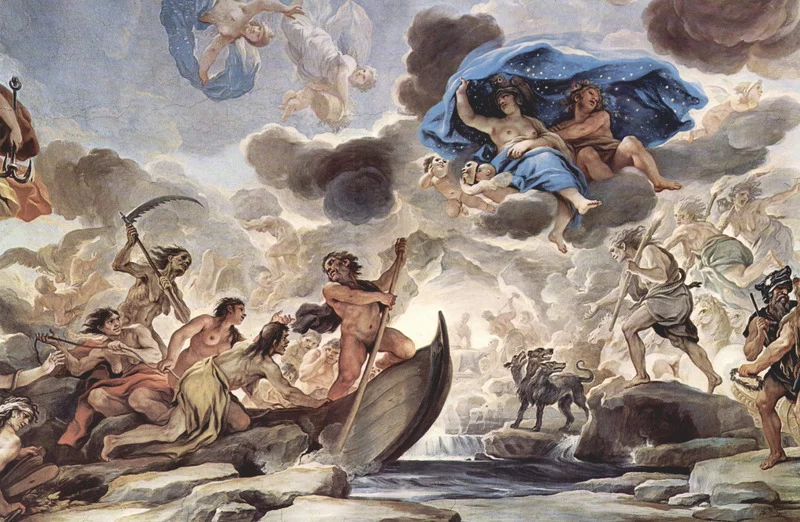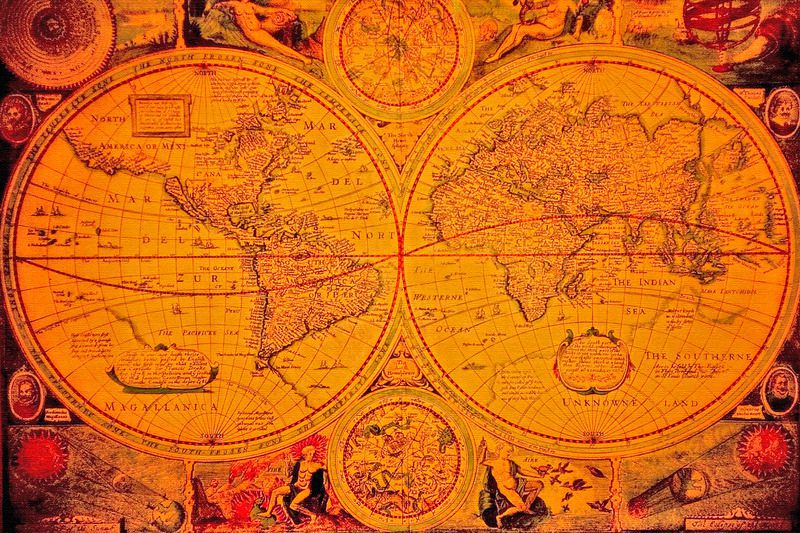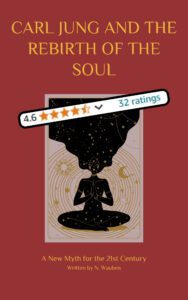“Everything that we now call culture, education and civilization will one day appear before the infallible judge, Dionysus.” (Friedrich Nietzsche, The Birth of Tragedy, p.95)
Table of Contents
Introduction
In a previous article I have discussed one of the most interesting ideas of Friedrich Nietzsche, his idea of the Apollonian and Dionysian spirit. In his first published book, the Birth of Tragedy, Nietzsche defined both concepts, the Apollonian and Dionysian, and illustrated how, if both, the Apollonian and Dionysian spirit operate in unity, they can produce something truly unique. However, as I discussed as well, Nietzsche claimed that Greek tragedy met a tragic death resulting from an opposition to the Dionysian spirit, an opposition which was, according to Nietzsche, characterized by Socrates and the Socratic ideal of knowledge and the idealization of the rational.
Nietzsche believed that our under-emphasize of the Dionysian spirit had implications for many aspects of our lives. In this article I will discuss these implications and illustrate how the Apollonian and Dionysian concepts relate to several aspects of our lives, such as art, education, culture, and myths. As a result of this discussion, we might question, as Nietzsche did as well, whether, in our modern world, we have forgotten about Dionysus and the Dionysian spirit. At the same time, I will also discuss why Nietzsche believed that a rebirth of tragedy and the Dionysian spirit was possible, and how this discussion of the Dionysian and Apollonian spirit would become an important theme throughout Nietzsche’s future works, as well as how this idea influenced other thinkers.

Art
It is interesting to note that Nietzsche was heavily influence by Arthur Schopenhauer. We can see a clear link between the importance Schopenhauer attached to art (more information on Arthur Schopenhauer and art can be found here), and Nietzsche’s definition of Dionysiac art. Friedrich Nietzsche, like Schopenhauer, observed that art can be a way to transcend the suffering inherent to life at least for a moment:
“Dionysiac art, too, wishes to convince us of the eternal delight of existence – but we are to seek that delight not in phenomena themselves but behind phenomena. It wishes to acknowledge that everything that comes into being must be prepared to face a sorrowful end. It forces us to look at the terrors of individual existence, yet we are not to be petrified with fear. A metaphysical consolation wrests us momentarily from the bustle of changing forms.” (p.80)
Art will then result in the creation of some sort of unity, as indicated in the table above, a characteristic of the Dionysian spirit: “For a brief moment we really become the primal essence itself, and feel its unbounded lust for existence and delight in existence.” (p.80) As a result, according to Nietzsche, we will be glad to be alive: “For all our pity and terror, we are happy to be alive, not as individuals but as the single living thing, merged with its creative delight.” (p.81)
Education and Culture
Friedrich Nietzsche moreover believed that our emphasize on the Socratic, Apollonian, and therefore the rational had far-reaching consequences for education and culture in our modern age. Everything, Nietzsche argued was build upon this Socratic ideal, which Nietzsche also termed ‘Alexandrian culture’: “The whole of our modern world is caught up in the net of Alexandrian culture, and its ideal is theoretical man, armed with the highest powers of knowledge and working in the service of science, whose archetype and progenitor is Socrates.” (p.86)
As a consequence, education is based upon this ideal as well, and any alternative methods not based upon this Socratic ideal are discouraged: “All of our educational methods take their bearings from this ideal: any other form of existence has a hard struggle to survive alongside it, and is in the end tolerated rather than encouraged.” (p.86)
There exists, however, according to Nietzsche, an urge for something beyond the theoretical man, mainly because, being solely based on science, the world of theoretical man has its limits: “We need only compare him with Socrates to see that modern man has begun to sense the limitations of the Socratic delight in knowledge, and yearns for a shore from the wide and barren sea of knowledge.” (p.86) Therefore, Nietzsche believed that we have now come to admire the ‘non-theoretical man’ i.e., the man filled with the spirit of Dionysus: “non-theoretical man is incredible and astonishing to modern man” (p.86)

Myths
In a previous article I have discussed the importance of myths in relation to the works of Joseph Campbell. Joseph Campbell observed that myths serve an important role as a bridge to the unconscious. Although myths are not true in the usual way in which the term is used, they are true in a different way. They can have an important function as a metaphor, thereby illustrating a much deeper truth, compared to what we are able to comprehend at first.
We do, however, no longer belief in myths because, for us to believe in something, it has to be scientifically true. As a result of this development, we have lost an important bridge to our unconscious. It appears as if Joseph Campbell was influence by Friedrich Nietzsche’s ideas from Nietzsche’s book the Birth of Tragedy. Nietzsche believed as well, because of our idealization of the theoretical man, that we have lost the ability to comprehend myths in the way that previous generations did: “In all likelihood almost everyone, having subjected himself to a rigorous examination, will feel so undermined by the critical-historical spirit of our culture that it is only by scholarly means and mediating abstractions that the former existence of myth can be made credible.” (p.109)
Like Joseph Campbell, Nietzsche also observed that myths are extremely important for a society. Joseph Campbell emphasized the importance of myths as a bridge between the conscious and the unconscious world, Nietzsche addressed the importance of myths as a creative force that could unify a culture, thereby also illustrating the connection between Dionysus, unity, and myths: “Yet without myth all culture loses its healthy and natural creative power: only a horizon surrounded by myths can unify an entire cultural movement.” (p.109) Myths can help the Apollonian world to comprehend and accept the struggles of life: “Myth alone rescues all the powers of imagination and the Apolline dream from their aimless wanderings. The images of myth must be the daemonic guardians, omnipresent and unnoticed, which protect the growth of the young mind, and guide man’s interpretation of his life and struggles.” (p.109)
Have we Forgotten about Dionysus?
As we can see from this present discussion, the Apollonian spirit is thoroughly represented in our modern world with our emphasize on the individual, moderation, beauty, the rational and order. It can be argued that the elements present in the god Dionysus, characterized by unity, joy, horror, myth, ritual, and chaos are underrepresented in our modern world. As a result, we might ask whether we have forgotten about Dionysus.
Nietzsche observed that, driven by the ideas of Socrates, art has declined as a result of the lack of a Dionysian element: “The influence of Socrates, up to our own times and beyond, has spread across posterity like a shadow lengthening in the evening sun, and how it has continually led to the regeneration of art – in the broadest and deepest, metaphysical sense.” (p.71) Nietzsche questioned whether this influence of Socrates, besides having a negative impact upon art, might not also be a manifestation of the decline of culture in a much broader sense: “Could not that very Socratism be a symptom of decline, fatigue, infection and the anarchical dissolution of the instincts?” (p.4)
Nietzsche even claimed that our emphasize upon science and the Apolline, might be a form of cowardice, an escape from the real truths of life, which could only be manifested in the Dionysian: “What does all of science mean as a symptom of life? Might the scientific approach be nothing but fear, flight from pessimism? A subtle form of self-defence against – the truth? And morally speaking, something like cowardice and falsehood?” (p.4)
From these arguments, as well as from the previous examples of the implications of a lack of a Dionysian spirit upon art, education, and culture, as well as myths, it is quite possible to argue that we have forgotten about Dionysus in our modern world. However, as Nietzsche argued, we can never escape the Dionysian, and everything will once again be judged by him: “As in the teaching of the great Heraclitus of Ephesus, all things move in a double orbit. Everything that we now call culture, education and civilization will one day appear before the infallible judge, Dionysus.” (p.95)

The Rebirth of Tragedy and Dionysus
As a result, after discussing the birth and decline of tragedy in his book the Birth of Tragedy, Nietzsche also claimed that the rebirth of tragedy and the Dionysian spirit was at hand:
“Yes, my friends, join me in my faith in this Dionysiac life and the rebirth of tragedy. The age of Socratic man is past: crown yourselves with ivy, grasp the thyrsus and do not be amazed if tigers and panthers lie down fawning at your feet. Now dare to be tragic men, for you will be redeemed. You shall join the Dionysiac procession from India to Greece!” (p.98)
Nietzsche admired philosophers such as Immanuel Kant and Arthur Schopenhauer for indicating the problems that a society solely based on the logical would have: “The tremendous courage and wisdom of Kant and Schopenhauer carried off the most difficult victory: victory over the optimism that lurked within the essence of logic, which in turn forms the basis of our culture.” (p.87) This optimism was characterized by a believe that science and logic would be sufficient to contend with all the mysteries of our existence: “Where that optimism had believed that all the mysteries of the world could be known and explained, relying on apparently innocuous aeternae veritates, and had treated space, time and causality as utterly unconditional and universally valid laws. (p.87)
By acknowledging the inherent deficit of logic and reason Nietzsche believed that Kant and Schopenhauer paved the way for the rebirth of tragedy and the spirit of Dionysus. I believe that, among others, we can add Friedrich Nietzsche himself, as well as Joseph Campbell and Carl Jung to this list of thinkers who addressed this deficit, and therefore also opened our world to the spirit of Dionysus.
Nietzsche believed that once our culture would once again be touched by the spirit of Dionysus, this would have far-reaching positive implications:
“But what changes come upon the wary desert of our culture, so darkly described, when it is touched by the magic of Dionysus! A storm seizes everything decrepit, rotten, broken, stunted; shrouds it in a whirling red cloud of dust and carries it into the air like a vulture. In vain confusion we seek for all that has vanished; for what we see has risen as if from beneath the earth into the gold light, so full and green, so luxuriantly alive, immeasurable and filled with yearning.” (p.98)
Apollonian and Dionysian in Nietzsche’s later works
It is clear from these quotes of Friedrich Nietzsche how passionate he was about the rebirth of tragedy and the Dionysian spirit. As a result, it is of no surprise that this theme, so passionately presented in the works of the still young Nietzsche (28 at the time the Birth of Tragedy was published), would be present throughout his later works as well.
We can clearly observe that this discussion of Friedrich Nietzsche of these two opposites, the Dionysian and apollonian, and the negative consequences of a lack of the Dionysian spirit is present in most of his important ideas.
One such example is his discussion of ‘the last man’. Nietzsche believed that our societies had been degrading partly because we are no longer embracing our chaotic Dionysian side. He illustrated this though his concept of the last man, who considers every form of chaos as something bad, but thereby missed out on some of the most important parts of life. I have written a separate article about Nietzsche’s idea of the last man and the importance he attached to chaos, which you can find here.
Another example, which pertains to a significant degree to Nietzsche disregard of the Socratic ideal, is Nietzsche’s idea of the Three Metamorphoses of the Spirit. The highest ideal of this transformation is represented by the child, who can slay the dragon, partly represented by the Socratic. An in-depth analysis of the Three Metamorphoses of the Spirit can be found here.
Influence on Others
Besides being a major influence on his own later works, I believe that Friedrich Nietzsche’s invention of the Dionysian and Apollonian concepts was also and important source of inspiration for other thinkers. Two in particular come to mind: Carl Jung and Joseph Campbell.
I have already indicated the link between Nietzsche’s emphasize on the importance of myths and the importance attached to myths of Joseph Campbell. I believe that a major theme present throughout the works of Joseph Campbell was an attempt to reinstall in us the Dionysian spirit through a rebirth of myth. As Joseph Campbell himself indicated “The modern hero deed must be that of questing to bring to light again the lost Atlantis of the co-ordinated soul.” (The Hero with a Thousand Faces, p.334) The co-ordinated soul being equally touched by the spirit of Apollo as well as Dionysus.
As mentioned in my previous article on Apollo and Dionysus, we can see a clear link between Friedrich Nietzsche’s discussion on the differences between Apollo and Dionysus and Carl Jung’s concepts of the spirit of the times and the spirit of the depths. We can equate the Apollonian with the spirit of the times, and the Dionysian with the spirit of the depths. Carl Jung further argued that the divine child can be created by uniting chaos and order i.e., uniting Apollo and Dionysus: “You open the gates of the soul to let the dark flood of chaos flow into your order and meaning. If you marry the ordered to the chaos you produce the divine child, the supreme meaning beyond meaning and meaninglessness.” (The Red Book, p.139)
Conclusions
We can be grateful to Friedrich Nietzsche for providing us with two unique new concepts; Dionysian and Apollonian. As discussed throughout this article, as well as the previous article, these concepts relate to art, but also to many other aspects of life. At the same time, they continued to have an important influence on Nietzsche’s ideas throughout his life, as well as the ideas of other great thinkers.
The Apollonian spirit represents individualism, moderation, beauty, rationality, and order. The Dionysian spirit is characterized by unity, joy, horror, myths, and ritual, as well as chaos. According to Nietzsche, we started to forget about the Dionysian spirit since the teachings of Socrates, whose ideas, mainly influenced by knowledge and rationality, directly oppose the Dionysian. Nietzsche believed that this opposition to the Dionysian spirit had other, far-reaching consequences: “Could not that very Socratism be a symptom of decline, fatigue, infection and the anarchical dissolution of the instincts?” (p.4)
Nietzsche, however, was optimistic that the suppression of the Dionysian spirit would not last forever. He observed that several thinkers, such as Kant and Schopenhauer, started to break down the Socratic wall. Perhaps, through our own efforts, however small it may be, we can contribute to the reunification of the Dionysian and Apollonian spirit. Otherwise, as Nietzsche argued as well, the spirit of Dionysus will return to us soon enough: “Everything that we now call culture, education and civilization will one day appear before the infallible judge, Dionysus.” (p.95)


SHBET is a bookmaker with a legal online betting license issued through the Isle of Man & Cagayan Economic Zone and Free Port. Website: https://shbet.id/